Resources
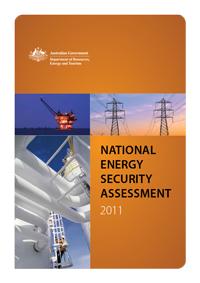 ,
, 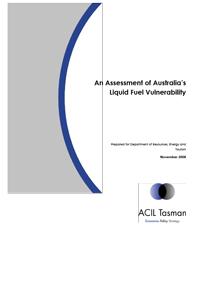
Date
Description
The NESA identifies the current strategic energy security issues in the liquid fuels, natural gas and electricity sectors, and those posing a potential risk in short term, medium term and longer term. The Government has indicated that the NESA will provide a key input into the development of future…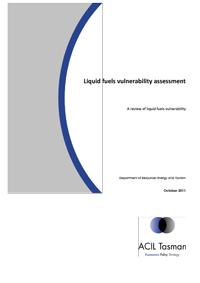 ,
, 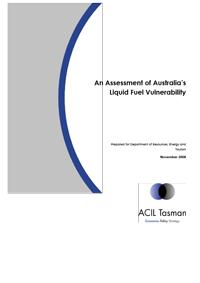
Date
Description
In 2009 and 2011, ACIL Tasman was engaged by the Federal Department of Resources, Energy and Tourism (DRET) to examine Australia's current level of liquid fuel vulnerability and significant trends which may affect this over the short, medium and longer term. The Liquid Fuel Vulnerability…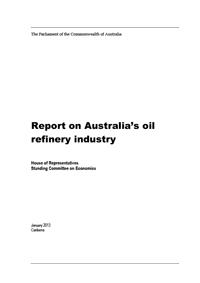
Date
Description
On 5 February 2013 the House of Representatives Standing Committee on Economics tabled its Report on 'Australia's Oil Refinery Industry', following the Committee's inquiry in 2012. The Inquiry was conducted in relation to claims and concerns being raised about the viability of Australia's oil…Date
Description
Liquid Fuel Supply Security and Reliability The Australian liquid fuel supply chain has considerable span and diversity. It includes crude and petroleum product shipments into and around Australia, refinery throughput, bulk fuel storage tanks, extensive terminal and distribution networks, over…Date
Description
Relying on shipping (for imports) does not increase security risks, and shipping lanes are not easily disrupted. Most countries are reliant on movements of petroleum (crude and product) within and between countries, and particularly so for Australia (in both an export and import sense).…Date
Description
Transport fuel imports do not increase risk for supply reliability and security A diversity of global supply sources and local import facilities provide a range of options for Australia. Australia is already dependent on imports to meet the growth in demand for transport fuels (eg. demand…Date
Description
Self-sufficiency in transport fuels is not necessary for supply security Security of supply is the result of resilient and efficient supply chains and robust risk management – it is not about self-sufficiency or independence from markets. There are 3 critical elements of any strategy to…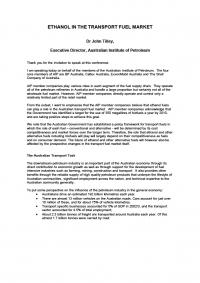
Date
Description
Dr John Tilley, Executive Director of the Australian Institute of Petroleum, told the 2005 International Ethanol Conference in Brisbane today that AIP members see a role for ethanol as a fuel extender, replacing some fuel imports and helping to meet the growth in overall fuel demand, as well as a…Date
Description
Three of Australia's peak automotive industry and consumer bodies have urged the federal government to support a maximum limit of10 percent of ethanol in petrol and not to mandate its use. The landmark determination by the three bodies sets a clear agenda for government deliberations. The…Date
Description
The oil industry today supported the announcement by the Federal Minister for the Environment Robert Hill that leaded petrol would be phased out nationally by 1 January 2002. 'The oil companies will be introducing lead replacement petrol progressively in each State, in consultation with State…